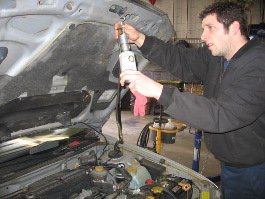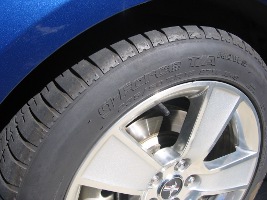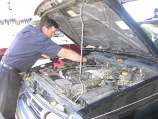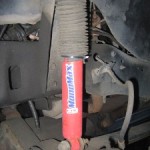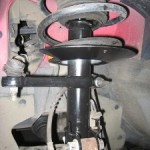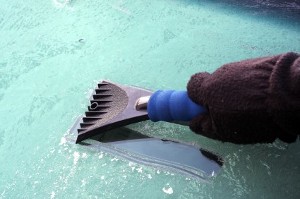 Reader Question: I took my truck in for a routine oil change. The mechanic said I needed a brake fluid change because it was dirty and needed flushing because of the ABS anti-lock brakes. I’ve never heard of this before. Why do I need a brake fluid change?
Reader Question: I took my truck in for a routine oil change. The mechanic said I needed a brake fluid change because it was dirty and needed flushing because of the ABS anti-lock brakes. I’ve never heard of this before. Why do I need a brake fluid change?
Dear Reader: Clean brake fluid is vital in keeping your brake system working properly. Brake fluid shouldn’t freeze or boil, but as soon as it is put into the brake system it starts to absorb moisture. The fluid attracts moisture through microscopic pores in the rubber hoses or seals and through exposure to the air. That moisture is very damaging to the brake fluid. After only one year of service, the brake fluid in an average vehicle might contain as much as two percent water and it takes very little moisture to make the brake fluid less effective. The heat generated by normal and especially hard braking makes the moisture in the fluid boil and that causes the brakes to loose their effectiveness. Also brake fluid that is contaminated with moisture and dirt (if moisture can get in than so can dirt) can have a drastic effect on braking systems that use anti-lock brakes. The contaminants can ruin the delicate inner parts of these systems, which are extremely expensive to repair.
Did you know that the average motorist who drives 10,000 to 15,000 miles a year uses their brakes about 75,000 times a year? You would think that since drivers are using their brakes so much they would recognize the importance of having their brake fluid changed. But probably half of all vehicles that are 10 or more years old, here in the U.S. have never had their brake fluid changed. Just like you, they have never heard of it, or if they have, they have failed to see the importance of it. Experts recommend having a brake fluid change every one to two years as a preventative measure. We wouldn’t be doing our job if we didn’t agree.

